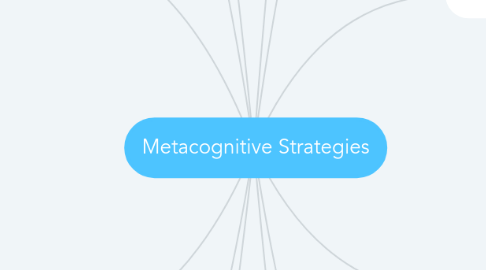
1. Chapter 7
1.1. Preparing for class
1.1.1. Attend classes
1.1.1.1. Especially classes at the beginning of the term
1.1.2. Ask for "active" teachers
1.2. Practice behaviors
1.2.1. Listening during class
1.2.2. Taking salutary notes
1.2.3. Contributing to the class
1.3. Note taking
1.3.1. Take notes of your choosing
1.3.1.1. Ex. Cornell
2. Chapter 8
2.1. Studying
2.1.1. Manage enough time for studying
2.2. Memory imporvement
2.2.1. Use different ways to improve
2.2.1.1. Aural
2.2.1.2. Visual
2.2.1.3. Read/Write
2.2.1.4. Kinesthetic
2.3. Ask tutors or friends for help
3. Chapter 9
3.1. Test/Exams
3.1.1. Try to learn as much as you can about the test
3.1.2. Never skip tests
3.2. Prepare yourself
3.2.1. Emotionally
3.2.1.1. Study
3.2.1.2. Take notes
3.2.2. Physically
3.2.2.1. Have about 8 hours of sleep
3.2.2.2. Exercise
3.2.2.3. Have a healthy diet
3.3. Cheating
3.3.1. Never cheat
3.3.2. Try to prepare yourself enough to not cheat
4. Chapter 10
4.1. College Life
4.1.1. Get comfortable
4.1.1.1. Get used to the campus
4.1.1.2. Know the amount of homework you get
4.1.1.3. Get to know the people at the campus
4.1.2. Courses
4.1.2.1. Take required classes early
4.1.3. Writing
4.1.3.1. Prewriting
4.1.3.2. Drafting
4.1.3.3. Revising
5. Chapter 11
5.1. Getting used to the college
5.1.1. Bigger campus
5.1.2. More classes
5.1.3. Increased amount of people
5.2. Learn from others
5.2.1. Colleges and universities have a vast range of people
5.2.1.1. Take advantage of that and try to learn as much as you can
5.3. College Students
5.3.1. Understand, appreciate, and embrace diversity
6. Chapter 12
6.1. Finance
6.1.1. Get a stable amount of money
6.1.2. Try to refrain from wasting it on something that you don't need
6.2. Work
6.2.1. Decide where and how long you are going to work
6.3. Significant numbers
6.3.1. GPA
6.3.2. Credit Score
7. Chapter 1
7.1. Determination, resolve, goal
7.2. Goal Setting
7.2.1. Identify personal strengths
7.2.2. Ask tough questions
7.2.3. Establish goals for today, this week, and beyond
7.3. SMART Goals
7.3.1. Specific
7.3.2. Measurable
7.3.3. Attainable
7.3.4. Relevant
7.3.5. Timely
8. Chapter 2
8.1. Taking control of your time
8.1.1. Locus of control
8.1.1.1. person's belief on how much they control themselves
8.1.2. Control your schedule
8.1.3. Control internal and external factors
8.2. Using time management tools
8.2.1. Academic calendar
8.2.2. Electronic calendar
8.2.3. Track important due dates
8.3. Distractions
8.3.1. Socializing
8.3.2. Games
8.3.3. Events
9. Chapter 3
9.1. Emotional Intelligence (EI) in real life
9.1.1. Understand your emotions and feelings to better understand
9.2. Develop EI
9.2.1. Use past exepriences
9.2.2. Try to predict what is going to happen
9.3. Using EI
9.3.1. Learn strengths and weaknesses
9.3.2. Set goals
9.3.3. Formulate a plan
10. Chapter 4
10.1. Preferences
10.1.1. Use what you are strong at
10.1.2. Apply strengths to other aspects of life
10.2. Learning Style
10.2.1. Develop study strategies
10.3. Study
10.3.1. Identify the easiest way you get things done
10.3.2. Try to modify it to broaden study range
11. Chapter 5
11.1. Imagination/Curiosity
11.1.1. Ask questions
11.1.2. Express yourself at college
11.2. During class
11.2.1. Predict what questions might be on tests
11.2.1.1. Lectures
11.2.1.2. Notes
11.2.1.3. Textbook
11.3. Collaborate
11.3.1. Join Study groups
11.3.2. Ask family members
11.3.3. Get a tutor
12. Chapter 6
12.1. Textbooks
12.1.1. Take them seriously
12.1.2. Provides a lot of material for future tests
12.1.3. Can vary greatly from one another
12.2. Notes
12.2.1. Take notes during class
12.3. Reading
12.3.1. Previewing
12.3.2. MArking
12.3.3. Concentrating
12.3.4. Reviewing

